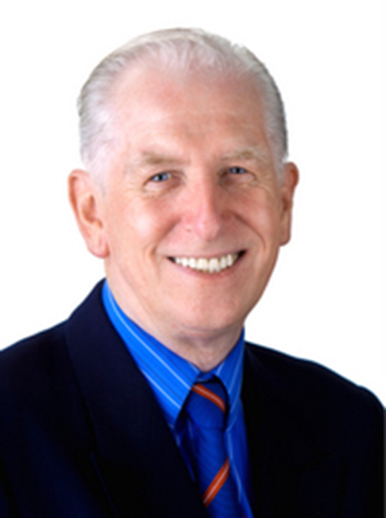Your Career & Character
By Dr Charles Margerison
Psychologist
Introduction – Psychology of Careers
What can we learn about our careers from amazing people – like the two-time Nobel Prize winner, Dr Marie Curie, or the playwright, William Shakespeare, or Harriet Tubman, the slave who became a civil rights leader
That is a question that fascinated me from an early age and guided my interest in the psychology of careers and character. When I left school, I was not sure what kind of work I should I do. My initial jobs in clerical administration and factory production gave me a wage, but did not inspire me.
Reading the life stories of people like Coco Chanel, William Lever, the founder of Unilever, Sarah Breedlove, the daughter of slaves who employed over 4000 women, and Percy Julien the soybean entrepreneur, gave me an insight into what was possible. They had all left school at an early age, yet went on to develop successful careers.

I also left school at the age of 16. My first job was a wage clerk for a large industrial company. It was repetitive and boring. I moved on to work in social services to provide information to those who were homeless, disabled, elderly and in need of support. After working for a few years, I gained entry to London University, where I studied Psychology and Sociology. That led me to gaining a job in a business school, where I identified the psychological factors of career success.
Learning from Career Stories
In due course, I reviewed the life stories and character strengths of over 500 amazing people to identify themes that we can all use for our own personal development. They include entrepreneurs, doctors, musicians, scientists, engineers, architects, explorers, spies, teachers, writers, politicians and many others.
Some of them, like Andrew Carnegie and Thomas Edison – the mega rich industrialists, had little or no formal education. Some technology entrepreneurs, like Steve Jobs and Bill Gates, left college without qualifications, to follow their business dreams. Other high achievers like Indira Gandhi and Marie Curie were well educated. So, there is no one pathway.
This article, which is part of a series on the psychology of career self-development, focuses on key character aspects associated with achievement and success. In particular, it examines what amazing people did. These are reflected in both their words and deeds.
Career Choices

The key message I see emerging is that each of the amazing achievers were the authors of their own career. Before they led others, they established their own plan as personal career action script. They focussed on developing their character strengths. Each person –
- Identified their purpose and areas of application.
- Focused their efforts to gain skills and practical experience.
- Developed objectives and gave themselves permission to implement them.
- Persisted despite setbacks and difficulties.
- Gained support and developed networks.
- Achieved results by coordinating teamwork.
Ideas and Applications
The start point for each of the amazing people that I have studied is what I call their ‘self-talk.’ In each case, this was based on their ideas and levels of optimism or pessimism with regard to the issues they faced. Amazing people were usually optimistic idealists who became realists by testing their ideas and implementing action plans.
They observed family, friends and colleagues and said, ‘I would like to do that,’ or ‘I do not want to do that.’
- Mozart heard his father play the violin and was keen to do likewise.
- Harriet Tubman, born to a family in slavery, resolved to escape and use her time and abilities as she chose.
- Marie Curie made the bold decision to study for a science degree in France, as women were not allowed to enter universities in Poland, where she was born.
Some amazing people have said their purpose became clear when they reacted to difficult problems. They observed fear and developed plans to give others hope. Examples from the life stories illustrate the motivating factors.

- Dr Barnardo started his shelters for the homeless children when he saw boys in London with no place to live.
- Sojourner Truth was a slave in America, who ran away to make a new life because of the unfair and harsh conditions.
- Florence Nightingale felt the need to convert her religious beliefs into action by establishing nursing facilities for those in need.
In each case, they found a purpose they felt was important both for their own lives and those they served.
Career Preferences and Character
In each case, the careers of these people started when they developed their own positive life script plan. That is the equivalent of a personal map. Each script is different, albeit they all have the following elements.
- Purpose – amazing people discovered a purpose that motivated their actions.
- Principles – each person developed a set of beliefs to fit and drive their purpose.
- Perception – they used their intuition to identify opportunities in their chosen area.
- Skills – each amazing person developed relevant skills to fulfill their purpose.
- Time – they used their time to focus on achieving their purpose.
- Organization – they developed networks to gain support.
- Persistence – the amazing people were determined and resilient, despite difficulties.
- Adaptation – they were action learners and adjusted their approach to fit the needs.
It is clear that each amazing person had their own character and pattern of work preferences, which were central to their self-talk and script.
- Shakespeare focussed on writing and did not try to become a musician.
- Mozart focussed on music and did not try to be a scientist.
- Marie Curie focused on research and did not try to be a business entrepreneur.
- Carnegie focussed on being a businessman and did not try to be a doctor.
Therefore, identifying one’s purpose and preferences early in life is an important part of career success. Increasingly, schools are trying to help students, and some use psychometric designed questionnaires. My work in that area indicates it is difficult for students with limited or no work experience to make choices. As an alternative, I have tested an approach linked to the careers of amazing people.
Exercise
Educators can ask students to meet in a group of 3 or 4 and do as follows:

- Each student chooses a career area in which they are interested, such as Science, Medicine, Business, Law, Education, Arts and any other category that is of interest.
- Each student then has a week to find a person in their chosen area who has had an outstanding career. This can be easily done through appropriate internet information sites.
- Each student should make notes on the life story of the person they chose. These notes should indicate the era in which they lived and what they did in order to succeed.
- The students should convene a group. Each student will have a few minutes to provide the other students with a summary on the life of the person they have researched. Then the other students will have 10 to 15 minutes to ask questions and discuss the extent to which a career in the area mentioned would be of interest to them.
- At the end of the discussion, each student should summarise – ‘What I have learned about myself and my career interests as a result of the discussions today?’
This group discussion approach will help students clarify and identify their areas of their own career interests. It is the start point for developing personal career scripts.
Summary
Choosing a career is one of the big decisions in everyone’s life. It takes a lot of time to qualify in a trade or a profession. The research on amazing people shows that they all identified a purpose they regarded as important. That became the basis for their career script or plan. They developed skills and abilities to help them fulfil their purpose.
Therefore, we are encouraging students to look for areas of work that are of personal interest. There are various ways in which they can do that from gaining work experience, to interviewing people about their jobs. In the process, they can discover their own purpose and develop their character strengths to have interesting and fulfilling careers.










